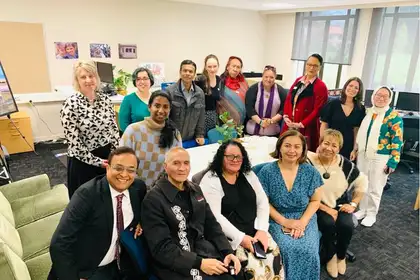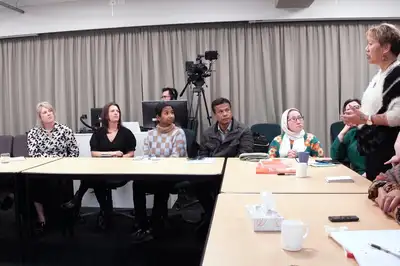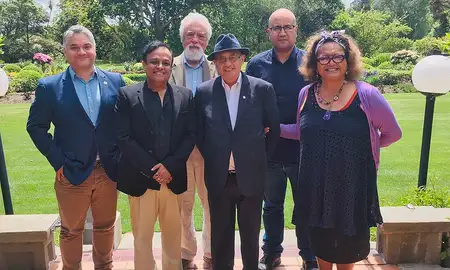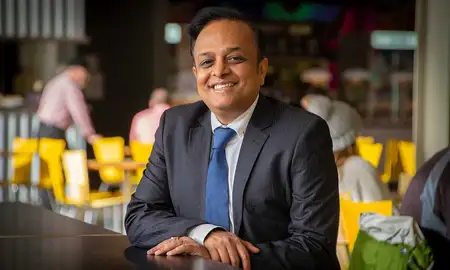
Minister Marama Davidson (front row, second from the right) met with community advisory groups to discuss family and sexual violence prevention.
The dialogue was led by four community advisory groups at diverse intersectional margins, leading and organising social change to address family violence and sexual violence. The meeting was joined by Emma Powell, Chief Executive of Te Puni Aonui, and Sarah Townsend, Principal Advisor, Te Puni Aonui.
The four community advisory groups were represented by Tuturu Takimoana Hoterini, Cushla Kerr, and Sarah Holdaway representing the Highbury Community Advisory Group, Selina Metuamate and Nicky Hambrook, representing the Feilding Community Advisory Group, Negin Nematollahi and Zahra AliZadah representing the Palmerston North Migrant and Refugee Women Advisory Group, and De’Anne Jackson and Selena Pirika representing the Wellington Rainbow Advisory Group.
The Minister thanked the research team and the community advisory groups for cocreating the report on culture-centered community-led strategies of violence prevention. She noted the attention paid in the report to creating spaces for community mobilisation to address the structural drivers of violence was powerful and refreshing to read. She further noted the support outlined in Te Aorerekura – the National Strategy to Eliminate Family Violence and Sexual Violence for community mobilisation that empowers diverse communities to drive and own social change processes.
In 2021, CARE produced the report outlining a culture-centered community-led framework for prevention of family violence and sexual violence, drawing upon its year-long culture-centered ethnographic work with diverse communities (LGBTQIA+, disabled, ageing, and new migrant) at the intersectional “margins of the margins.” Funded by Te Puni Aonui, the report drew upon fifty hours of participant observations, 197 in-depth interviews with communities at the margins, and 31 in-depth interviews with sector stakeholders
Underpinning the report is the framework of the culture-centered approach (CCA), that guides the development of voice infrastructures in community advisory groups at the margins that lead and own the solutions for social change. The report offers a conceptual framework for community mobilisation to prevent family and sexual violence experienced by diverse communities.
The CARE team worked in communities to cocreate community-led prevention frameworks with advisory groups, supported by the funding grants to CARE and partner community-led organisations to drive national-level family violence and sexual violence prevention initiatives for LGBTQIA+ people, disabled people, older people and new migrant communities.
Each of the community advisory groups shared the violence prevention work they have been carrying out at the “margins of the margins.” They shared the prevention strategies they have created, and the interlinkages of these prevention strategies with complementary community-led efforts such as Māra kai (community food gardens), community food cupboards, and community-led social cohesion actions.

Selina Metuamate, community pou leading the Feilding Community Advisory Group welcomed the visit from Marama Davidson.
“It was great. I am glad that we were listened to, and the Minister engaged with us. All that we are doing as a community was appreciated. I feel very positive that we are heading in the right direction and feel supported by the Minister. There was also a lot of great feedback from the other advisory groups, and it was wonderful to see the acknowledgment of the community by the Minister. It was great to listen to all the other community voices, to witness the community-led change they are building, and to see we are on the same page with community mobilisation to address the drivers of violence, colonialism, capitalism and whiteness. I felt heard. We are all a collective in this movement to address violence in our communities.”
The dialogue with the Minister inspired the groups to continue their work leading social change by building and strengthening local community democracies anchored in cultural knowledge, and by finding ways to build and sustain connections at the intersectional margins.
Related news
Māori Council partners with Massey research hub
The NZ Māori Council has announced a strategic research partnership with Massey University and its CARE research hub.

Academia and advocacy: New research centre comes to Massey
Professor Mohan Dutta uses a culture-centred approach to support communities to develop their own health-focused communication interventions and policies.
